Environmental and Global Ethics

Interview by Richard Marshall

'Belief in stewardship implies that human agents and collectives are responsible for their treatment of the natural world. Theistic versions say that we are responsible to God. Secular versions say that we are responsible to the community of moral agents.'
'Biocentric consequentialism addresses ethical issues by taking into account the interests of present people and nonhuman creatures, and also of foreseeable people and other creatures of the future.'
'If our obligations towards animals are not obligations of justice, then even if we accept obligations not to be cruel to them or negligent towards them, and that like interests should be treated alike (whichever species the interests belong to), we shall find that obligations towards humans, even if based on peripheral interests, will have to be given priority over obligations to animals, even in matters of basic needs.'
'One of the aspects of sustainable development is that of moving towards a sustainable population. Fortunately this is already happening in large parts of the world. But it is possible for societies to foster this form of sustainability. The simplest expedient is female education, which widely tends to result in a reduction of fertility levels.'
'All your readers are global citizens to some extent, as users of the world-wide web, which has made some forms of parochialism anachronistic, and also as holders of human rights. However there is a need for us all to educate ourselves in the needs of people and environments worldwide. Fortunately we do not all need to be conscious of our global citizenship before policies of global sustainability, such as those of the 2015 Paris Conference, can be introduced.'

Robin Attfield is an Emeritus Professor of Philosophy (ENCAP) and also of the Sustainable Places Research Institute. He taught and researched areas of philosophy including ethics, philosophy of religion, history of philosophy and environmental philosophy from 1968 to 2009, and continues to work in these fields. Here he discusses environmental ethics and stewardship, biocentric consequentialism, the preservation of species, anthropocentricism and extending justice to non-humans, the importance of future interests, the importance of sustainable development, whether sustainability is compatible with liberal democratic politics, global ethics and global citizenship, on making environmental issues moral issues, whether priciples are deeper than relationships, progress and directionality in science, whether moralising environmental issues is bad, and how his environmental views attach to his theological views.
3:16: What made you become a philosopher?
Robin Attfield: I wanted to find out whether there were good grounds for my belief in God. I concluded gradually that there were. Three of my books have a bearing on this issue:

God and The Secular [1978], Gregg Revivals, 1993
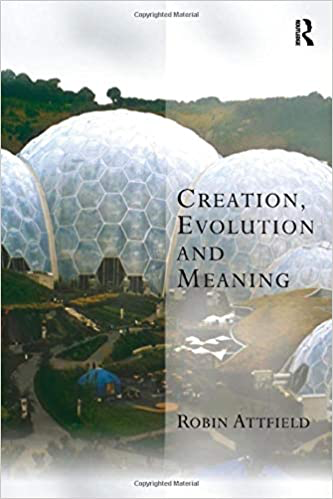
Creation, Evolution and Meaning, Ashgate (now Routledge), 2006
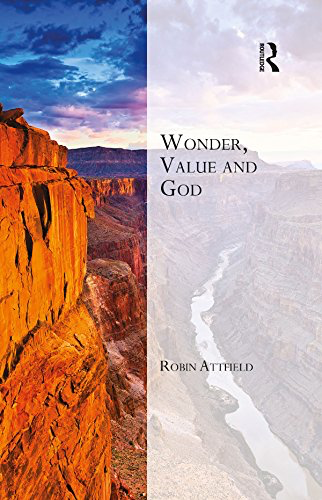
Wonder, Value and God, Routledge, 2016
3:16: You’re interested in environmental ethics. You frame these in terms of stewardship which, although it is often associated with a religious perspective you take to be tenable within a secular setting as well. So what are the potentially conflicting values arising from environmental problems and ethics that the stewardship approach is designed to solve?
RA: Belief in stewardship implies that human agents and collectives are responsible for their treatment of the natural world. Theistic versions say that we are responsible to God. Secular versions say that we are responsible to the community of moral agents. Each of these versions can involve the same range of values. Thus some religious and some secular varieties are anthropocentric (or hold that human interests are the only ones that count); examples include Jean Calvin and Bryan Norton. Others are biocentric, holding that all living creatures count (for example, Albert Schweitzer and Paul Taylor); and there are numerous intermediate positions, both religious and secular. There are numerous issues between e.g. biocentrists, anthropocentrists and sentientists. For example, only the former have reasons for seeking to preserve non-sentient creatures living beneath the Antarctic ice-cap (and any living on other planets). However, Stewardship beliefs are important in general, because if human agents are not held responsible to anyone for their treatment of the natural world, then their obligations are likely to be ignored, or to be held to turn on the interests of the agent and her/his family or nation only. The growth of technology makes stewardship beliefs all the more important, since a greater difference is made between our acting responsibly and our acting otherwise.
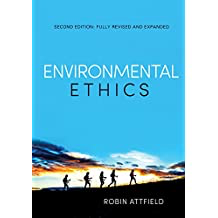
3:16: So how does the stewardship tradition approach these issues – in particular your normative theory of biocentric consequentialism and its surrounding meta-ethics? You defend an objectivism here don’t you – is that optional – do we really need to commit to a meta-ethical position of objectivity, or any meta-ethical position at all even?
RA: This question requires a book-length answer. To begin at the end, no ethical stance is complete without a matching meta-ethical stance. This is born out by the fact that, in ethics courses where meta-ethics is delayed till the later stages, students are always prone to ask early on about the status of ethical claims, and/or about whether such claims have good grounds. If, as many students think, ethical claims are mere expressions of opinion, then overtly clashing claims are all covertly compatible, and those not antecedently persuaded of them are free to ignore them. An objectivist meta-ethic has strongly different implications with respect to claims about our obligations, duties and rights.
Biocentric consequentialism addresses ethical issues by taking into account the interests of present people and nonhuman creatures, and also of foreseeable people and other creatures of the future. It will discount future interests only where there are grounds for doing so. Thus it will be concerned about the long-term consequences of actions and policies that release radioactivity into the environment, of chemical pollution and of actions and policies which are likely to extinguish species. (See books such as my Environmental Ethics: An Overview for the Twenty-First Century. )
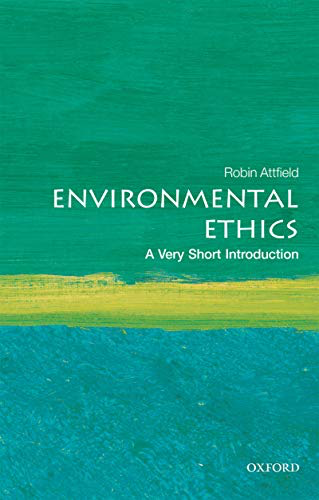
Stewardship approaches these issues in similar ways where stewardship beliefs (religious or secular) are harnessed to biocentric consequentialism. Adherents of stewardship who hold deontological or virtue-ethical or contractarian ethical stances will reach somewhat different conclusions. Stewardship is not itself an ethic, but a model which requires one ethic or another. In recent years many conservationist bodies have adopted the language of stewardship, and tend to take into account at least the next two generations, and at least sentient animals, while religious bodies have widely adopted such language too, stressing the need for care, under God, for fellow-creatures. I am afraid you will have to make do with these three paragraphs, instead of a book. But I have recently published a very short book which covers these matters, Environmental Ethics: A Very Short Introduction (Oxford University Press, 2018).
3:16: How do you argue for the preservation of rare and declining species over caring for more plentiful species? Doesn’t the notion of rare vs plentiful need to be nuanced by the reality that tigers, for example, are pretty plentiful but most are in farms, for example, that over 60% of all vertebrates are in zoos or farms and that we don’t know all the biological species that are going extinct?
RA: If I were arguing from the well-being of existing organisms only, then the preservation of rare species would be a problem, though one reduced by the strong human interest in our continuing to enjoy and appreciate these species. But as it is, biocentric consequentialists argue also from the future members of these species, whose very existence, a precondition of their well-being, depends almost entirely on the continued existence of the current population of the species. This means that biocentric consequentialists can prioritise the preservation of members of rare and declining species over that of most members of most other species.
The fact that some species exist in greater numbers in zoos seems to me to make little difference, except when the zoo population allows species that are nearly extinct to reproduce and then repopulate wild regions. The well-being of future members of these and of other species turns on their being able to flourish in the conditions in which they have evolved (or in the changed conditions generated by global warming); their lives in zoos are a pale shadow of flourishing of this kind.
3:16: Do you think that the moral obligations regarding justice we have for humans extends to animals – maybe even plants? Why do you think we need an environmental ethics on top of human-centred ethics? Couldn’t we just generalize from the human centred stuff? Why is anthropocentrism a problem rather than a basis for thinking about environmental problems?
RA: Yes, I do. If our obligations towards animals are not obligations of justice, then even if we accept obligations not to be cruel to them or negligent towards them, and that like interests should be treated alike (whichever species the interests belong to), we shall find that obligations towards humans, even if based on peripheral interests, will have to be given priority over obligations to animals, even in matters of basic needs. (I have argued to this effect jointly with Dr. Rebekah Humphreys in two articles in the Bangladesh Journal of Bioethics, and can send copies to anyone interested. Alternatively they are available on ResearchGate.)

This question assumes that we first have a human-centred ethic(s) and then may or may not add an environmental ethic(s). But this is a mistaken assumption. Many people begin life in families that recognise obligations to pets as family members, and then have to reflect on whether their obligations should be extended to other humans and to other animals. There again, almost everyone these days needs an environmental ethic, if only to avoid toxic fumes and noise pollution. In any case, if, as Peter Singer argues, like interests should be treated alike, then it is not feasible to treat humans as having moral standing and other creatures as lacking it.
The idea of generalising from ‘the human-centred stuff’ again supposes that we begin with a sense of obligation to (all/some) human beings. I am all in favour of discovering the full extent of human interests, including actions needed to preserve the basis of scientific curiosity and aesthetic appreciation, and acting accordingly. But most people begin with relationships with nonhuman animals as much as with relationships with other people. And if we end up shutting our minds to the good of nonhumans, whether animals or plants, we also end up with a truncated sensibility (a kind of human solipsism).
Anthropocentrism is both a problem and a basis (albeit an unsatisfactory one) for reflecting on environmental problems. For my view on how it can be a basis, see the previous paragraph. For its unsatisfactoriness, consider the mental and moral states of those who harden their hearts and adopt a wholly instrumental attitude to the nonhumans with whom they interact. For on this basis there is no moral objection to cruelty to animals or to neglect of animals, except on the grounds of side-effects in the form of harm to human beings. I rest my case.
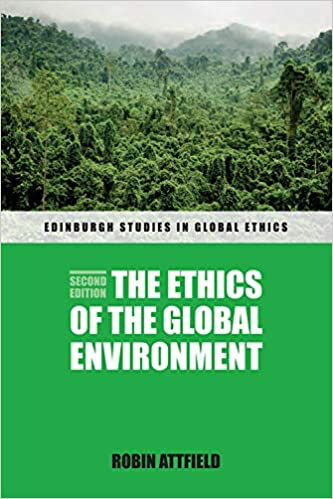
3:16: How important are future interests in all this – and how best should we understand the demands of future interests to present-day decision making?
RA: Future interests count in principle just as much as current ones. Where they are uncertain, they count for somewhat less; but then, many current interests are also uncertain, while some future interests are certain. So if we discount future interests for uncertainty, we should not do so in a wholesale manner, but in a discriminating manner, with no discounting where there is little or no uncertainty. Releasing medium-level or high-level radioactive substances into the atmosphere is virtually certain to have adverse impacts, both on humans and on other creatures. Thus the foreseeable impacts of current action and current policies count as reasons when present-day decision-making is being carried through. Since future generations are in danger of being under-represented in legislatures, provision should be considered for appointing legislators to represent them. (See further The Ethics of the Global Environment, Edinburgh U.P., 2ndedition, 2015.) Some people suggest that we cannot know what future people will want. But we can know what they will need, including relatively unpolluted lands, seas and atmosphere. And if we all can know this, then so could representatives of future generations appointed to represent them in legislatures.
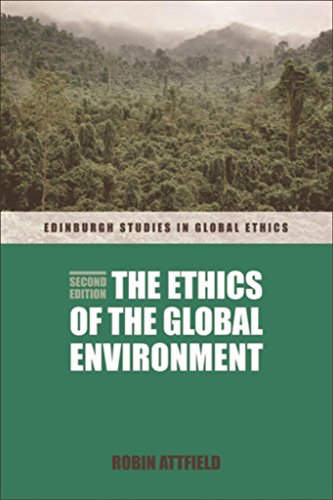
3:16: Can you say why you think the concept of sustainable development to be significant and capable of tackling issues ranging from poverty, population and bio diversity?
RA: Development (in the sense of social and economic development) is present when a society is moving of its own accord towards overcoming poverty, famine, malnutrition, illiteracy and high rates of mortality and morbidity. Sustainable development involves development capable of being sustained across decades and centuries. Thus where the evils just listed are present, development is ethically mandatory. But since unsustainable development would involve their return (intermittent or continual), sustainable development is ethically mandatory as well.
One of the aspects of sustainable development is that of moving towards a sustainable population. Fortunately this is already happening in large parts of the world. But it is possible for societies to foster this form of sustainability. The simplest expedient is female education, which widely tends to result in a reduction of fertility levels.
Sustainable societies depend on having sustainable environments. So there is invariably a human benefit where environments are sustainable. However, when sustainable development includes among its aims the preservation of nonhuman species for their own sake (a theme to be found in the Brundtland Report, also known as World Commission on Environment and Development, Our Common Future, 1987), then there is a direct connection between policies of sustainable development and the preservation of wild species and (something necessary for this) their habitats.
3:16: You think even a radical understanding of the concept is compatible with a liberal democratic framework – some might think this in itself is enough to show that it can’t go far enough! What do you say to these doubters?
RA: Well, this rather depends on the meaning of ‘radical’. Compulsory forms of population policy are not compatible with a liberal democratic framework. But education for sustainable development is compatible, and so are taxes to build infrastructure to improve public transport, and population policies of a voluntary kind. Doubters who want authoritarian forms of social framework for the sake of sustainable development are likely to find that such forms of society are themselves unsustainable. Nevertheless much can be achieved by democratic governments prepared to deploy incentives (e.g. for solar panels) and deterrents (e.g. taxes on luxury commodities and on luxury accommodation) in the cause of a sustainable society.
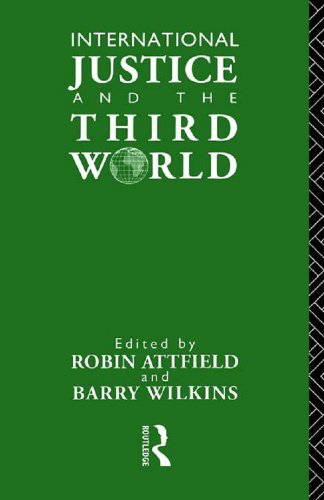
3:16: What kind of global ethic and global citizen is required by the global problems we’re facing – and given the encroachment of protectionist policies, nationalism and authoritarian rule across the globe, is this a real option at the moment?
RA: The kind of global ethic needed has to take into account the interests of humanity as a whole, and also all the species of the planet. I have argued the consistency of this with biocentric consequentialism here.
All your readers are global citizens to some extent, as users of the world-wide web, which has made some forms of parochialism anachronistic, and also as holders of human rights. However there is a need for us all to educate ourselves in the needs of people and environments worldwide. Fortunately we do not all need to be conscious of our global citizenship before policies of global sustainability, such as those of the 2015 Paris Conference, can be introduced.
In reply to whether a global ethic and global citizenship are a real option in an age of nationalism and populism, I would reply that if in face of such nationalism and populism we lose hope and discard such forms of a global ethic as we already have, that would involve opting for unmitigated worldwide nationalism and populism of a kind which would be even more dangerous than the current state of the world, marked as its is by the existence of at least nine nuclear-armed states. But given our global culture of music, sport, and international collaboration in terms of communications and agreements (from telecommunications to the law of the sea), this nightmare scenario is also unlikely. It is possible to build on the existing recognition of international and intercultural ties, and to develop increasing levels of awareness of global citizenship, even in the age of Trump, Putin, Erdogan and Bolsonaro. (See further my ‘Global Citizenship and the Global Environment’, in Nigel Dower and John Williams (eds.), Global Citizenship, Edinburgh: Edinburgh University Press, 2002, 191-200.)
3:16: You note that an international agreement on mitigation and adaptation remains urgently needed and this makes the Precautionary Principle obviously relevant. But isn’t there a worry that by making environmental issues a moral and ethical issue, rather than an economic, legal or political one, doesn’t give you many levers to pull to actually bring about the required changes . Why do you think that ethics is the way to go with environmental issues?
RA: Making environmental issues a moral issue is not an alternative to treating them as economic, political and legal issues. They are all of these at once. Those arguing for recognition of global environmental obligations have no need to foreswear campaigning for international treaties, for international finance to underwrite the conservation of habitats in developing countries, the legal recognition of limits to the treatment of animals, or for international laws (for example) to restore the ban on whaling. While there is an ethics of ‘levers’, there is nothing to prevent ethically informed and motivated people reaching out for and potentially agreeing the deployment of such ‘levers’. The assumption that ethics is somehow a self-sufficient way to proceed is unrealistic in the extreme; I have yet to find an ethicist who adheres to it.
3:16: And why do you think principles are deeper than relationships given that some, like James Kellenberger, would argue that principles are derived from relationships?
RA: Well done to discover my reply to James Kellenberger, who attempts to derive all obligations from relationships. I would first point out that there are many non-reciprocal obligations, such as our obligations to distant people in developing countries, towards generations as yet unborn, and towards nonhuman species as well. While we each originally learn about obligations in relationships, it is a fallacy that our obligations must therefore be confined to relationships, let alone to those same relationships. In case anyone wants to pursue this matter further, the bibliographical details of my paper about this are: Robin Attfield, ‘Relationships, Obligations, Normativity and Depth’, in Theoretical and Applied Ethics (of around eight or nine years ago).
3:16: You’ve examined Ruse and Hull on progress and directionality in science, the humanities, society and evolution. Can you sketch for us your reflections on this and how they relate to a particular theological perspective?
RA: Once again, congratulations on your having done your homework. Yes, I both criticised David Hull on Michael Ruse’s grounds that he does not recognise progress in science (e.g. Einstein’s theories as an advance on those of Kepler, Galileo and Newton), and Michael Ruse for not allowing the possibility of other kinds of progress, such as in evolution. The relation between this possibility and theistic belief is that if there were no progress in evolution, not even of the ramifying (bush-like) kind recognised by Charles Darwin, then it would be difficult to believe that there was any kind of divine purpose pervading evolutionary history. Since, on the other hand, the number of species is probably greater than ever (despite anthropogenic species loss), and the degree of creativity and of sociality displayed by a number of species appears to be greater than (e.g.) that apparent in the age of the dinosaurs, belief that there is a divine purpose underlying evolutionary and human history remains credible, world wars and genocides notwithstanding. In case anyone want to look up this article, the details are: ‘Robin Attfield, Progress and Directionality in Science, Society and Evolution’, in Journal of the Philosophy of History, 10, March 2016, 29-50. (I believe that this and most of the other writings referred to here may be found on ResearchGate.)
3:16: Some might push back against environmental ethics by arguing that although they agree that we’re facing terrible problems moralizing it is a bad approach. It seems to commit people to the idea that a meaningful life is a moral life and that consequentialist ethics can quickly lead to impossibly hard choices whereby people are asked to act like moral saints. It’s already the case that food, for example, is now a hugely moralized issue where eating becomes a site for virtue displays and shaming – so my question is whether you think by moralizing all these problems isn’t helpful and actually leads to creating division and acrimony even when the underlying problems are acknowledged by all?
RA: This question assumes that I am making environmental problems (that is problems of the environment generated by human beings and capable of mitigation or alleviation by them) into moral problems. But they would be moral problems even if I had died in infancy, and even if the same had happened to all moral philosophers. The question appears to assume some kind of constructivist meta-ethic, by which issues can be made into moral issues. Well, I suppose some can, e.g. some people think that cleaning their teeth twice a day is a moral obligation. But I have to reject any across-the board constructivist account of moral judgements. There are, I believe, moral obligations not because of anyone’s attitudes or prescriptions but because an overwhelming weight of moral reasons support performing them; and most environmental problems issue in actions that are (in my understanding) of this kind.
I do not hold the view that a meaningful life is a moral life; there are too many plausible exceptions, such as that of Paul Gaugin. I have also written about the relation of meaningful lives to moral lives, in an article called: ‘Moral Standing, Saving the Planet and Meaningful Life’, in Dialogue, 38, April 2012, 36-40.Also I, like you, dislike virtue displays, and most attempts at shaming.
There is also a philosophical issue in normative ethics that is relevant here. Obligatory actions are ones that it would be wrong not to do. But many right acts are not obligatory, but supererogatory; they are not ones the omission of which would be wrong, but are performed out of e.g. kindness, generosity or love. These are the acts about which J.O. Urmson wrote his famous article ‘Saints and Heroes’. If, as I recognize, there are such acts as supererogatory acts (like going the extra mile), then it is sadly misguided to represent all right or justified pro-environmental actions as mandatory, as if it were obligatory to be a moral saint. Thus it is quite important for ethicists (including environmental ones) to leave room for acts of supererogation, and not to make their performance seem obligatory.
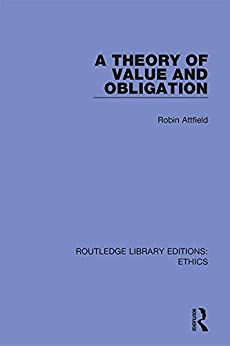
(I have written about this in my book Value, Obligation and Meta-Ethics (1995), recently re-issued by Brill.)
Even with this said, some people will draw the key distinctions in the wrong place, and shame others unnecessarily. But there are ways of avoiding this, as when communities of people share meals without judging the eating habits of others. There are many such communities; I have in mind the Society of Friends to which I belong. They are not immune from misjudgements, but they at least aim and profess to be non-judgemental about individuals, as well as reminding each other of the types of behaviour that are to be expected, which now include observing our new ‘testimony’ to the environment (alongside our testimonies to truth, peace, simplicity and equality).
3:16: As a take home, how does your approach to environmental problems become enriched by theological reflection? Can you sketch for us where your theology leads you and how theology and philosophy and environmental science play a role in your thinking?
RA: Lets begin with environmental science. Among others, one significant contribution is that in order to preserve species it is necessary to preserve the ecosystems (or some of them) in which the species participates.
Next, philosophy. This contributes through value-theory, normative ethics (which environmental ethics has significantly enriched), epistemology (e.g. in matters concerning climate change acceptance versus climate change skepticism), metaphysics (issues such as whether ecosystems or the biosphere are organisms, or not), aesthetics (which, inter alia, supplies some of the grounds of wildlife preservation), an political philosophy (e.g. on issues such as the compatibility of liberal democracy and environmentalist solutions).
Next, theology. One of several relevances is that, for theists, all organisms are creatures of God, and this fellow-creatures of human beings. For some (including myself) this is a source of inspiration in the cause of wildlife and habitat preservation, while even for the most anthropocentric of theologians (e.g. Calvin) it has produced a softening of attitudes to wildlife and domestic animals. The stance that results from understanding creatures as fellow-creatures is best expressed in Quaker Faith and Practice (3rdedition, Religious Society of Friends, 2004) Advice 42: ‘We do not own the world, and its riches are not ours to dispose of at will. Show a loving consideration for all creatures, and seek to maintain the beauty and variety of the world. Work to ensure that our increasing power over nature is used responsibly, with reverence for life. Rejoice in the splendour of God’s continuing creation.’
This passage encapsulates several themes, from the statement in Psalm 24 ‘The Earth is the Lord’s’ to the passage in Romans 8 about all creation being part of God’s plan for (its and our) salvation. It also reflects the recently explicit theme of stewardship, which was expressed in the ancient world, but has been more explicit since the seventeenth century.
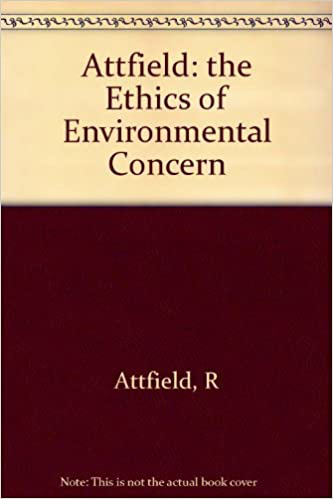
My reflections on the roles of philosophy and theology are expressed in greater detail in The Ethics of Environmental Concern, 2ndedition, University of Georgia Press, 1991, while there is a chapter on the relations of religion to environmental ethics in Environmental Ethics: A Very Short Introduction, Oxford U.P., 2018.
3:16: As an optional extra I’m asking interviewees to complete one word answers to the following survey.
3:16 and RA: A priori knowledge: yes or no? Yes
Abstract objects: Platonism or nominalism? Neither
Aesthetic value: objective or subjective? Objective
Analytic-synthetic distinction: yes or no? Yes
Epistemic justification: internalism or externalism? Externalism
External world: idealism, skepticism, or non-skeptical realism? Realism
Free will: compatibilism, libertarianism, or no free will? Libertarianism. (See Darwin’s Doubt, Non-deterministic Darwinism and the Cognitive Science of Religion’, Philosophy, 85.4, 2010, 465-483.
God: theism or atheism? Theism. (See Creation, Evolution and Meaning, 2006; now available from Routledge.)
Knowledge claims: contextualism, relativism, or invariantism? Invariantism
Knowledge: empiricism or rationalism? Both
Laws of nature: Humean or non-Humean? Non-Humean
Logic: classical or non-classical? Both
Mental content: internalism or externalism? Externalism
Meta-ethics: moral realism or moral anti-realism? Moral Realism (See Value, Obligation and Meta-Ethics; available since 2018 from Brill.)
Metaphilosophy: naturalism or non-naturalism? In meta-ethics, naturalism. In metaphysics: expanded naturalism.
Mind: physicalism or non-physicalism? Non-physicalism
Moral judgment: cognitivism or non-cognitivism? Cognitivism. (See Value, Obligation and Meta-Ethics, available since 2018 from Brill)
Moral motivation: internalism or externalism? Externalism. (See Ethics: An Overview, Bloomsbury, 2012)
Normative ethics: deontology, consequentialism, or virtue ethics? Consequentialism. (See Value, Obligation and Meta-Ethics, available since 2018 from Brill.)

ABOUT THE INTERVIEWER
Richard Marshall is biding his time.
Buy his second book here or his first book here to keep him biding!
End Times Series: the index of interviewees
End Time series: the themes
Huw Price's Flickering Shadows series.
NEW: Steven DeLay's Finding meaning series